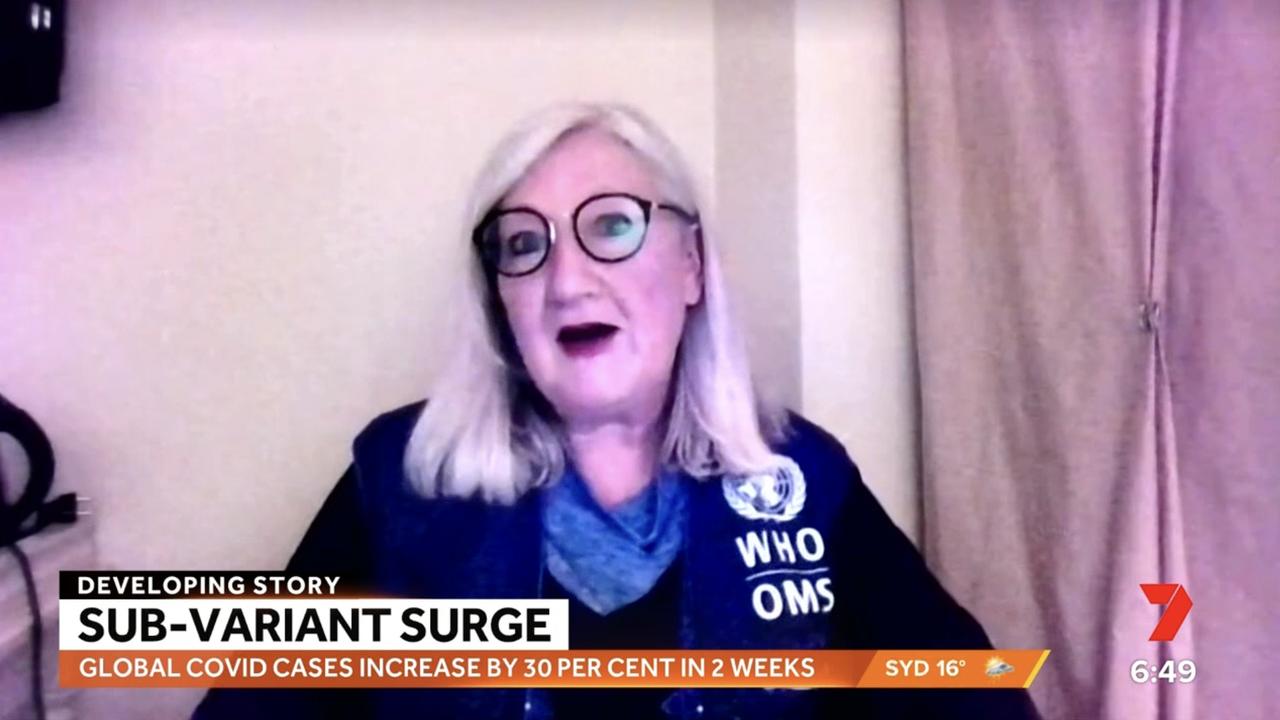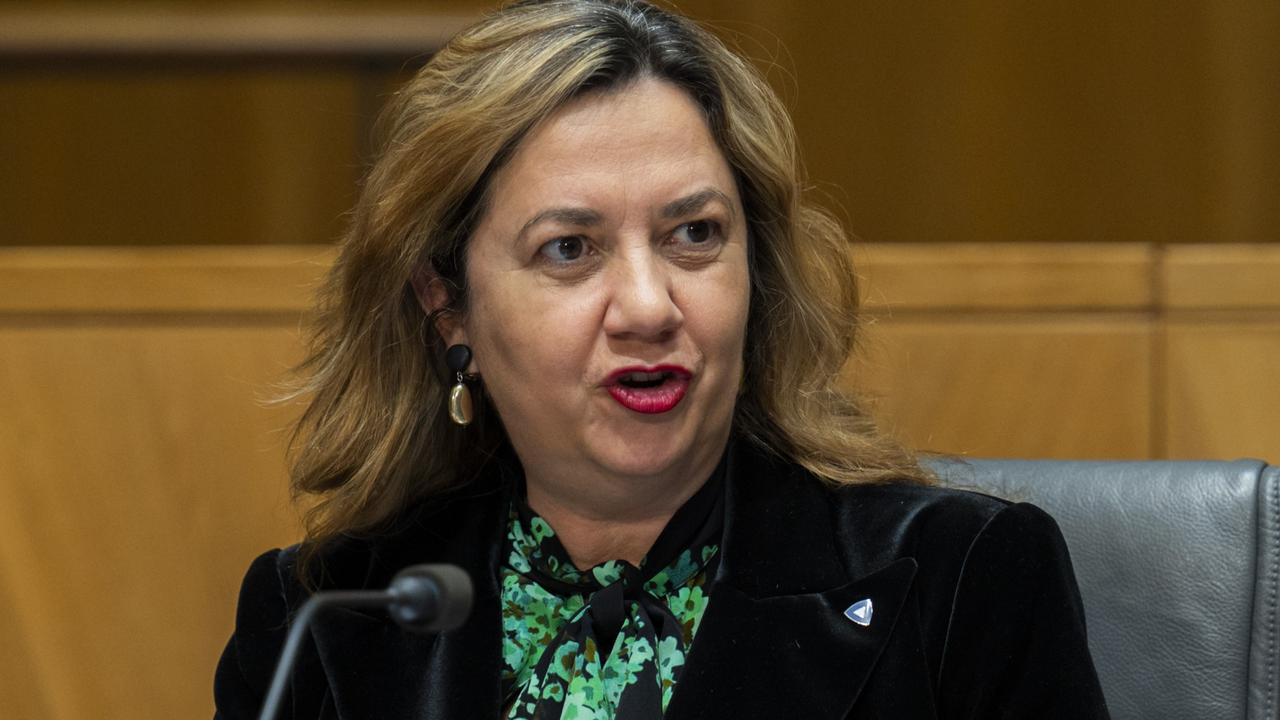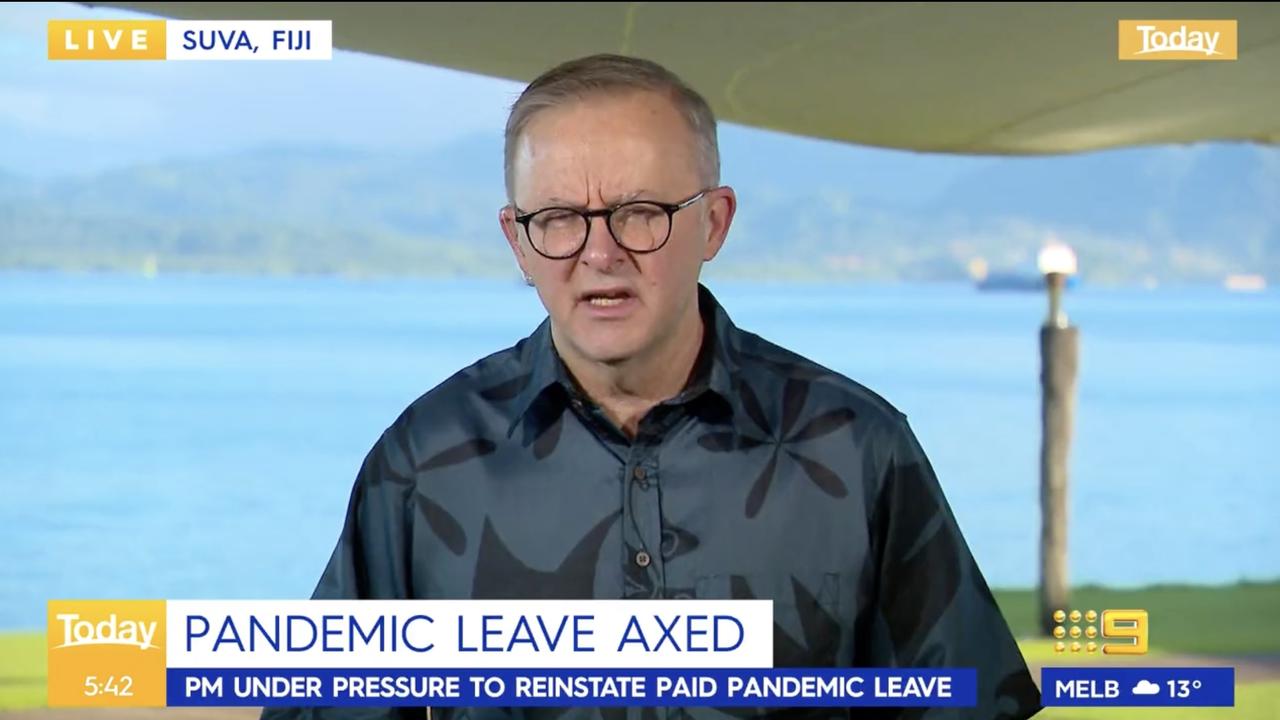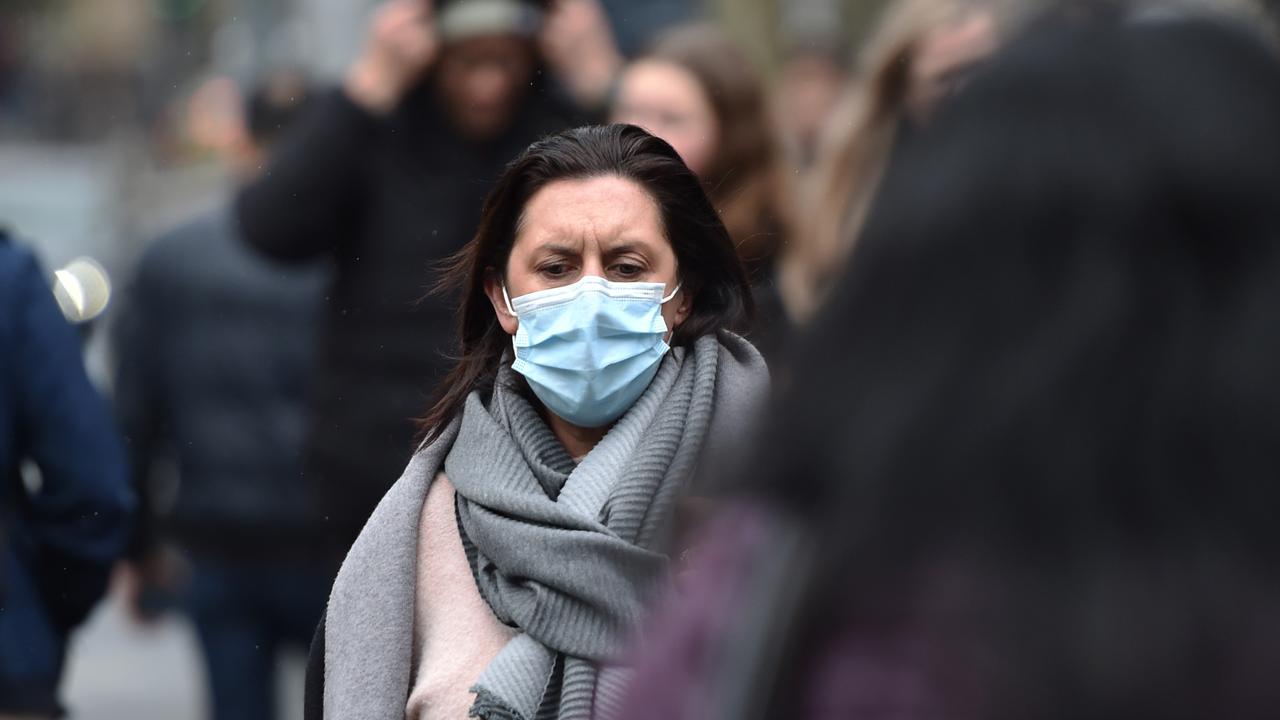Covid Australia: WHO doctor warns against reduced PCR testing as BA. 4 and BA. 5 sub-variants take over
As Australia grapples with its third Covid wave, a WHO doctor says current testing trends are potentially leaving us vulnerable to new variants.
As Australia grapples with its third wave of testing, a spokeswoman for the World Health Organisation (WHO) has warned that there were likely “far, far more cases” than are currently being detected.
Speaking from Poland, Dr Catherine Harris warned Australians to take the recent boom in cases “seriously”. She also stressed that lowered testing rates were having a big impact in Australia’s ability to manage the crisis – in terms of reporting accurate infection rates, as well as detecting new variants.
Although there was a “huge drop” in the number of genetic sequencing being reported to the WHO, the number of variants was increasing, she said. This comes as the Omicron BA. 4 and BA. 5 sub-variants have been blamed for the recent spike in cases globally.
“Unfortunately, we have seen many states drop the number of tests and one of the big problems is we are not seeing so many laboratory tests being done,” she said, appearing on Sunrise.
“We are not seeing the genetic sequences that let us know when there is a new variant turning up,” said Dr Harris.
“We really need more testing to be done.”

We’re going to see case numbers rise’
Australia’s Health Minister Mark Butler has also admitted the “real” Covid infection rate is likely double of what is being reported.
On Wednesday, he said federal modelling predicted that “millions” of Australians will catch the virus over the next few weeks.
“We have 250,000 to 300,000 people today who are infected on official data,” he said.
“The real number’s probably twice that, or maybe even more, according to what we understand about this variant.”
According to Wednesday’s figures, there were a new 44,179 infections reported nationally, with an estimated 316,574 active Covid cases in Australia. Currently 4477 people have been hospitalised with the virus, with 137 people in ICU and 33 people on ventilated.
This daily 📅 infographic provides a quick view of the current coronavirus (#COVID19) situation in Australia 🇦🇺
— Australian Department of Health and Aged Care (@healthgovau) July 13, 2022
Find out more here 💻 https://t.co/YcsPBOTHZDpic.twitter.com/tC3wgJeBUe
In light of growing figures, Australians have been asked to get their booster shots and wear masks indoors. While Mr Butler, state premiers and Chief Health Officers backed individuals covering up in busy spaces, politicians have been hesitant to issue mask mandates.
“I don’t see a position where governments are going to start sort of ordering people to do that (wear masks),” Mr Butler said, speaking on 3AW.
“I’m not sure that wouldn’t be counter-productive, given where the community is at.”
QLD Premier calls for National Cabinet meeting
Queensland Premier Annastacia Palaszczuk has requested Anthony Albanese to call another National Cabinet meeting. The forum would involve the Prime Minister, state premiers and Chief Ministers, with Ms Palaszczuk adding that it would give leaders an opportunity “to be updated with the most up-to-date advice”.
Speaking on Sunrise, she said NSW Premier Dominic Perrottet was in agreement in her request for a “short” meeting,
“We don’t want a long meeting, but we just want to get the advice and information. Like is this going to be a short, sharp wave, or are we going to get another wave in September?” she asked.
“I think we just want to know the answers.”

Although Ms Palaszczuk wouldn’t comment on whether the Federal government should reinstate paid pandemic leave measures, she said the meeting would allow the necessary discussion to take place.
“We are now seeing people getting the virus twice, which may mean (they need) additional time off work,” she said.
“We are (also) seeing some people hit harder, so that means they are off work for longer than the seven days. I do think we need to look at those particular examples.”
Albo grilled over scrapped paid pandemic leave
Despite rising cases, the Labor government has been criticised for their decision not to extend paid pandemic leave for casual workers, which ended on June 30. Recently, it was also announced that a program which gave free rapid antigen tests to pensioners would also end on July 31.
Appearing on Channel 9’s Today, host Ally Langdon repeatedly asked the Prime Minister he had made a “big mistake”. In response, he claimed “we haven’t”.

“What we inherited was a range of decisions from the former government timetable that they‘d worked out, some of which were in partnership with state and territory governments,” he said.
“And we inherited a trillion of debt – so we‘ll continue to take advice and monitor what’s going on.”
While he was repeatedly asked whether he would consider reinstating the support programs, the Prime Minister remained tight-lipped. Instead, his response was that he would continue to take health advice from experts, while working with state and territory governments.
"People did know that winter was coming. People did know that these were challenges that we had to deal with."
— 9News Australia (@9NewsAUS) July 13, 2022
The PM has denied he made a mistake by allowing pandemic leave payments to expire but says he's open to providing more assistance. #9News
MORE: https://t.co/II7JC4shJUpic.twitter.com/C4egsnw5z9
This comes as the Australian Medical Association (AMA) accused the Labor government of “wilful neglect” when it came to managing the “ongoing and escalating crisis”.
AMA president, Omar Khorshid accused Mr Albanese of “playing a very hard line on these critical Covid supports”.
“This is not just throwing money away, this is investment in people’s health during a pandemic,” he said.
“This wilful neglect of this ongoing and escalating crisis will result in some kind of catastrophic outcome for a significant number of Australians.
“I’m not sure how many people need to die before we get to the point where this issue is taken seriously.”
Covid ‘far from over’
Recently, WHO director-general Tedros Adhanom Ghebreyesus said cases have jumped by 30 per cent, internationally, in the last two weeks, warning people that Covid is “far from over”.

“Sub-variants of Omicron, like BA. 4 and BA. 5, continue to drive waves of cases, hospitalisation and death around the world,” said Mr Ghebreyesus.
“Surveillance has reduced significantly – including testing and sequencing – making it increasingly difficult to assess the impact of variants on transmission, disease characteristics, and the effectiveness of countermeasures.”






